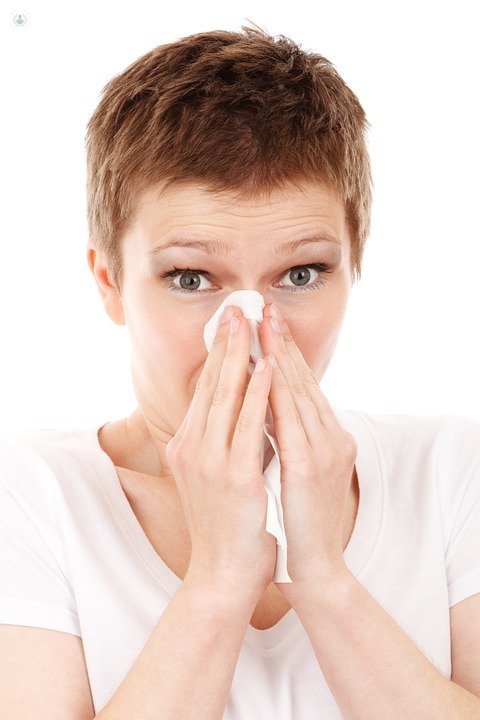Facing spring allergies
Written by:Rhinitis is of major allergic manifestations in spring. Because of the warm winter and high temperatures season pollen-related allergies is ahead. At this time of year it is advisable to pay attention to pollens and if you are allergic, know exactly the type of pollen allergy generated to address it with appropriate treatment.
Rhinitis symptoms and prevalence
 Rhinitis is one of the main allergic symptoms in the spring. This is defined as inflammation of the nasal mucosa characterized by one or more of the following symptoms: nasal congestion, runny nose, sneezing or itchy nose. Sometimes these symptoms may be accompanied by shortness of breath, chest tightness or wheezing ( "beepers"), which is what is called bronchial asthma.
Rhinitis is one of the main allergic symptoms in the spring. This is defined as inflammation of the nasal mucosa characterized by one or more of the following symptoms: nasal congestion, runny nose, sneezing or itchy nose. Sometimes these symptoms may be accompanied by shortness of breath, chest tightness or wheezing ( "beepers"), which is what is called bronchial asthma.
Approximately 50% of rhinitis are allergic and are mainly due to an immune response to allergens such as dust mites, pollens, animal dander or environmental fungi.
Allergic rhinitis is a disease that affects between 3 and 19% of the population figures in recent years have increased. Although it has a higher incidence in the spring season, rhinitis develops almost all year. However, during the spring and according to the unique characteristics of the warm winter it has been advanced allergy season caused by pollens, although moderately affected.
Different types of pollen during the year
Pollens are microscopic granules having a reproductive function in plants. Most allergens are transported by air, called anemophile. Balearic Islands, for example, depending on the time of year, dominates a different type of pollen, the most important being the cypress (January-February), the Parietaria known as "Morella roquera" (March - April - May), olive (March-April) and grasses (April-May).
Allergies caused by pollen are the most important pathologies of those affecting the respiratory system during spring. It is recommended to prevent these symptoms are often accompanied by shortness of breath and bronchial asthma. In addition to prevention, it is important that the patient undergoes a specific symptomatic treatment and another.
Tips and treatment of allergies
If the pollen symptoms patients should prevent and avoid contact with pollen. It is therefore important to know the pollen to which you are allergic and pollen season, keep in mind that there is less pollen concentration inside buildings and near the sea and, finally, to know that the worst days are those wind, dry and sunny.
Also, it is also advised to keep windows closed bedroom, traveling with car windows closed, avoid field trips at the worst time and use sunglasses.
Symptomatic treatment is based on the use of antihistamines, eye drops and corticosteroid nasal sprays. If accompanied by asthma inhalers are commonly used rescue, corticosteroid, or combination of both it can be treated with inhibitors of leukotriene receptors. However, it notes that these treatments do not cure the disease and simply relieved.
Intranasal phototherapy is a new technique for the treatment of allergic rhinitis. Intranasal administration consisting of light through a aparataje reducing and improves symptoms of allergic rhinitis.
Finally, include specific treatment, which are called allergen vaccines. Such treatment is progressive and growing administration of the pollens that cause allergies the patient. In fact, it is the only curative treatment of disease.
It is recommended that if you have these symptoms, the patient is seen by a specialist in Allergology that will guide you in the right treatm ent for each case.


